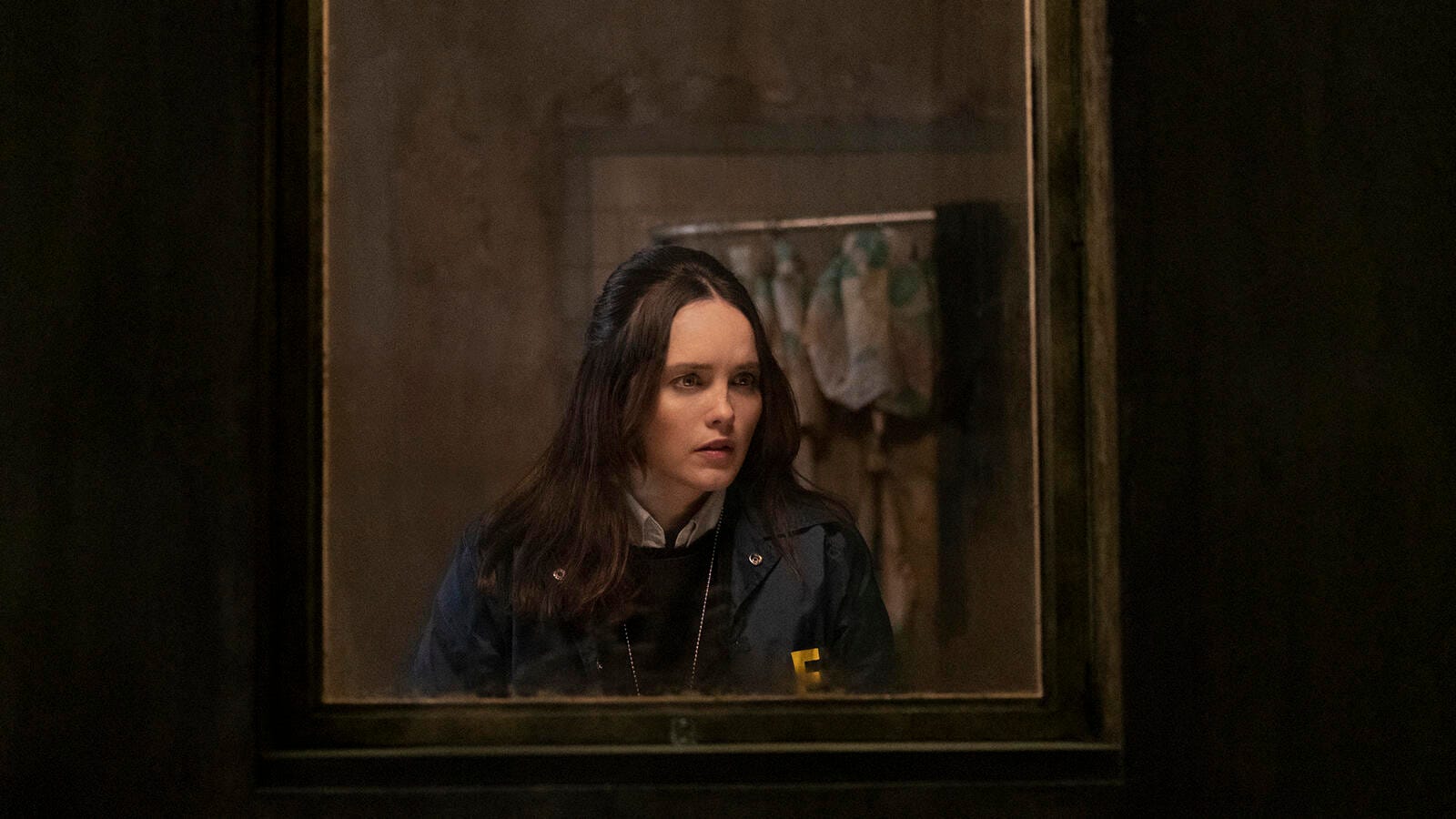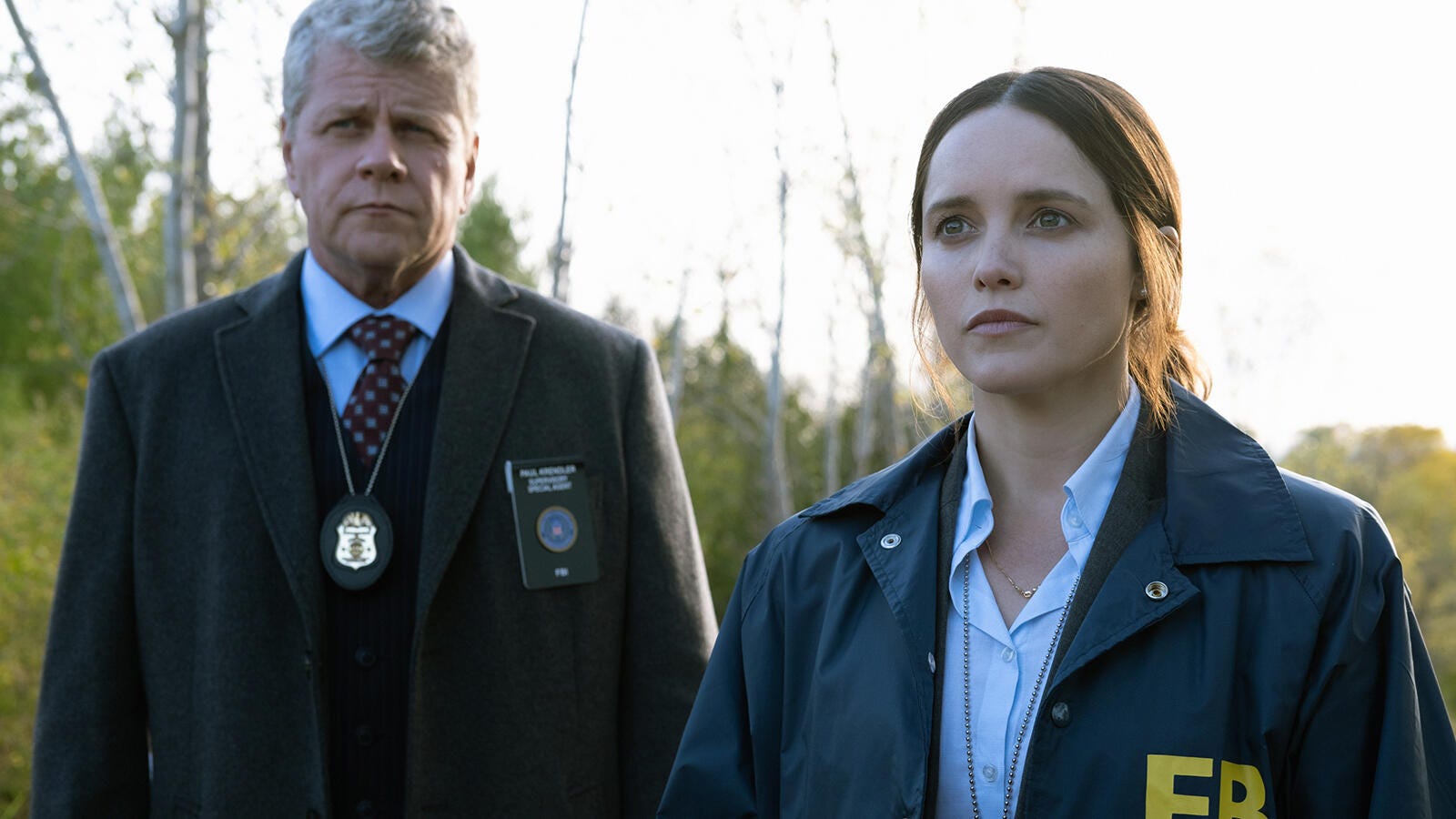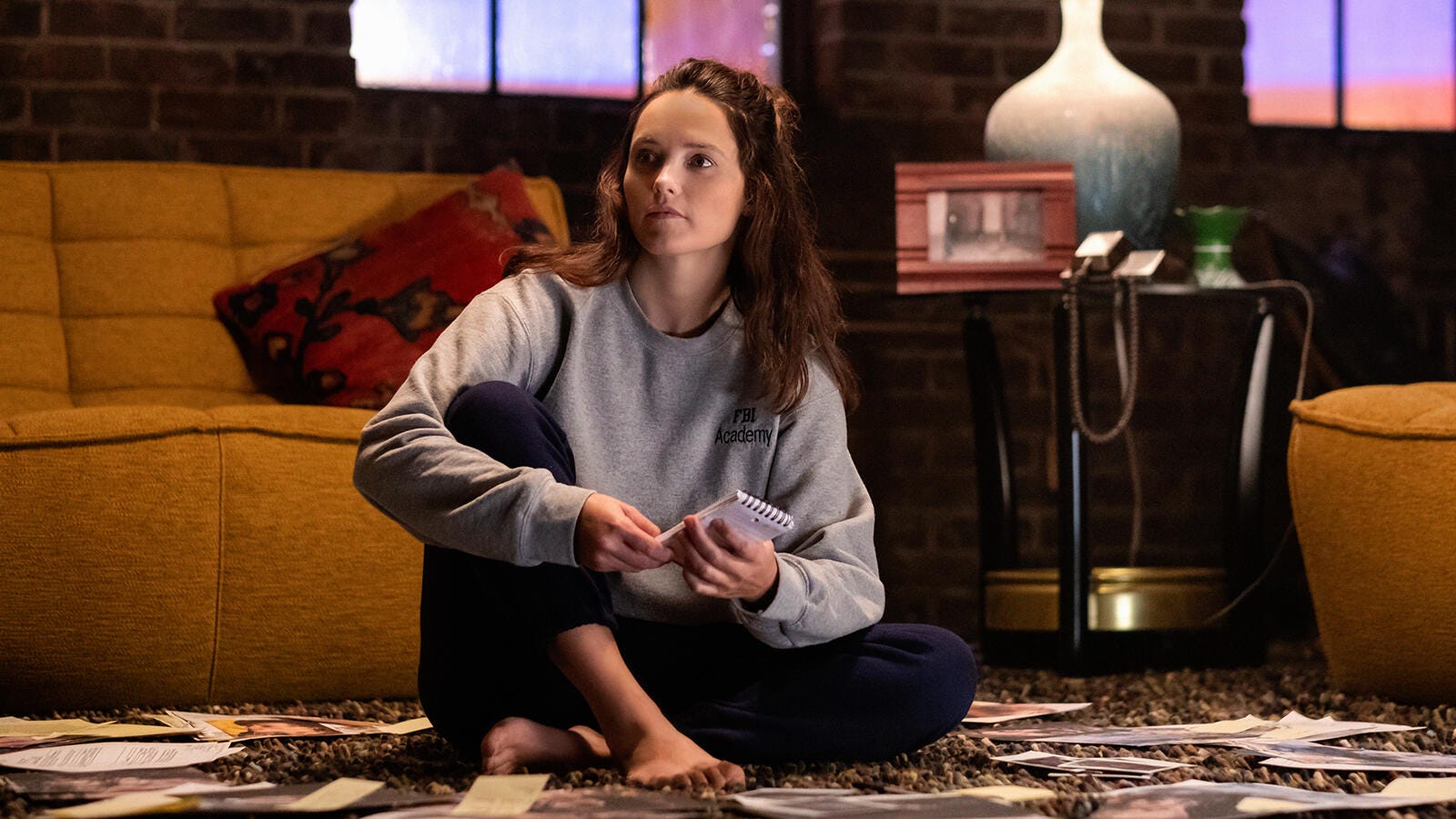Join or Sign In
Sign in to customize your TV listings
By joining TV Guide, you agree to our Terms of Use and acknowledge the data practices in our Privacy Policy.
Clarice Review: CBS's Haunting Silence of the Lambs Spin-Off Does Clarice Starling Proud
The new series is interested in its hero as a person, not a pop culture legacy

Rebecca Breeds, Clarice
Brooke Palmer/CBSClarice Starling needs no introduction. She's the kind of groundbreaking character whose TV series can be sold with one name. Clarice. Like Cher. The new CBS procedural, set a year after the events of The Silence of the Lambs, presumes that Clarice Starling is now famous in her world, too: She's the woman who took down Buffalo Bill — and tangoed with Hannibal Lecter, though you won't hear Hannibal mentioned by name in the series. There's a legal explanation for his absence from this story (the rights to author Thomas Harris' characters are confusingly divided), but it's a gift for the show: It keeps the focus on Clarice. She's the only celebrity this show needs. Her FBI therapist refers to Hannibal obliquely as her "last therapist"; he was fascinated with trying to get inside her head. Now, the new series is carrying on his work without him.
Clarice, premiering Feb. 11 on CBS, has an obvious advantage over most procedurals: Its main character is already one of the greatest heroines of all time. But there are enough ways this show could have gone wrong that it's worth celebrating how easy it makes it look to get the most important thing right. Clarice does Clarice proud. Played here by Rebecca Breeds, Clarice Starling is electric. Breeds is immediately charming in the role — she's not impersonating Jodie Foster, but she leaves a similar impression, simultaneously tough and vulnerable and sparking like a live wire. She's even the right height to be towered over by the men around her. What holds the character together is Clarice's distinctive West Virginia accent, which, going by my West Virginia grandparents, the Australian actress nails. It's a thrill to hear an Appalachian accent on a smart woman at the center of a major network procedural.
Like the movie, the series has the confidence not to overplay what makes Clarice Starling cool. Clarice is interested in its hero as a person, not a pop culture legacy. And as the show pushes past her larger-than-life reputation, a traumatized Clarice is basically doing the same. The series kicks off as she's called back into the field for the first time in a year, plucked out of the basement of the Behavioral Sciences Unit by Ruth Martin (Jayne Atkinson), the U.S. senator whose daughter, Catherine (Marnee Carpenter), Clarice saved from Buffalo Bill. Ruth, now the attorney general, wants the woman who rescued her daughter to join her new violent crimes task force under the watchful eye of Paul Krendler (Michael Cudlitz).
As procedurals go, Clarice is a long way from the overstuffed theatricality of the last series set in the Thomas Harris universe. Where Hannibal was ornate, Clarice is straightforward and stripped down, almost mournful. It's not aiming to be scary so much as haunting. The first three episodes made available to critics suggest the show will balance stand-alone cases with a good amount of serialization, setting up what could be a long-term conspiracy involving murdered women. That story is occasionally moving but also potentially irresponsible; it seems to be taking on Big Pharma from an angle that's only a few degrees removed from pushing a false link between vaccines and autism. It's too soon to be sure where the show is going, but it's a confusing choice, even for a series set in the early '90s.

Michael Cudlitz, Rebecca Breeds, Clarice
Brooke Palmer/CBSStill, one of the most satisfying things about Clarice is that it's not a modern reimagining — this is a proper Clarice Starling sequel set in 1993. The characters write in notebooks when they're out in the field and send important information via fax machine. It's nice to watch a show with so few screens. Clarice's throwback procedural vibe is dulled just a little by its artistic direction; the look of the series is almost too timeless, like it's working so hard to avoid winking at the era that it sands down some of the details that could have given it character. It's better for Clarice to play it straight than go over the top; a hammy, self-conscious '90s period piece about Clarice Starling would be unbearable. But would it kill the show to throw us a shoulder pad?
Clarice gets more vivid inside its hero's head, flashing back to Clarice and Catherine's twin experiences with Buffalo Bill or plaguing Clarice with surreal hallucinations. The jarring flashbacks, which recreate the movie in uncanny detail, hammer home her trauma while also delivering quick exposition, but the show leans too hard on them; Breeds' performance already makes clear that Clarice is fraying at the edges. The current that runs through the first few episodes, just as it ran through the movie, is the epidemic of violence against women. Both Clarice and Catherine are struggling to face the horror they lived through and heal from their ordeal. The show is able to label this as trauma and put Clarice in therapy to process it.
What it hasn't done, at least not yet, is match the movie's grasp of sexism in the workplace. Three episodes in, Clarice is clearly more focused on Clarice than on fleshing out any of her male colleagues, but she makes an early ally in one of her new teammates, Tomas Esquivel (Lucca De Oliveira). Their fellow investigators — Kal Penn's Shaan Tripathi and Nick Sandow's Agent Clark — seem likable enough. In the big picture of the show, the system is working against Clarice, but in close-up, only Krendler poses a consistent obstacle to her work, and even he can't sustain his role as a wet blanket for long. Clarice should humanize all of its main characters, but I hope it doesn't forget that humanized men can also be sexist. The show has been billed as the story of a woman finding her voice in a man's world. It can't do justice to what makes Clarice groundbreaking if it doesn't commit to giving her an uphill battle.
The first three episodes also don't give much indication of Clarice's approach to race and intersectionality, either with the men of color on her team or with her warm, no-nonsense friend Ardelia Mapp (Devyn A. Tyler). But the key to the show's point of view could be Ruth Martin. Ruth, possibly the most powerful woman in Clarice's America, is gunning for a sweeping crime bill that she argues will save the country's daughters from the next Buffalo Bill. Her bleeding-heart bill gives the series an opening to look at itself: a police procedural airing at a time when police procedurals are under more scrutiny, set in an era that paved the way for our current culture of over-policing. The show is already starting to push back against Ruth, drawing a line between the easy crime-solving victories that make the attorney general look good and the messier, darker truths Clarice wants to uncover. Fans of The Silence of the Lambs shouldn't expect Clarice to match the horror of the film, but it does right by the woman at its center. It's a well-executed procedural that works because it has the good sense to stay out of Clarice Starling's way and let her step into the light.
TV Guide rating: 4/5
Clarice premieres Thursday, Feb. 11 at 10/9c on CBS.

Rebecca Breeds, Clarice
Brooke Palmer/CBS